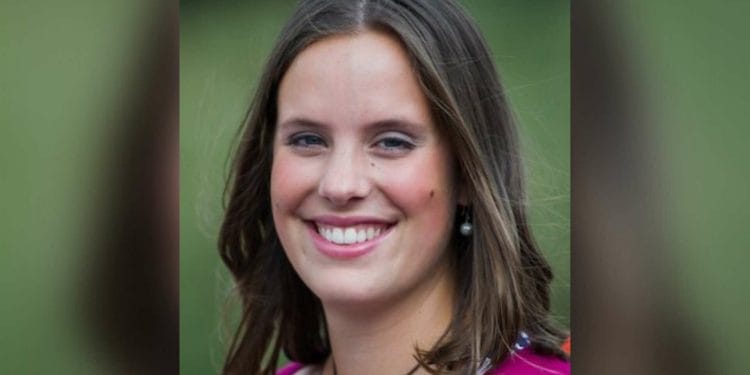Molly Freeman is the director of Kinder, the newest show from award winning puppetry and visual theatre company Smoking Apples.
Inviting you to take a seat inside an immersive set, the story unfolds through a series of playful hatches and openings.
Kinder is aimed at ages 11-16 years, and is at the Little Angel Theatre 11th – 14th May 2022.
You’re directing Kinder at Little Angel Theatre, what can you tell us about the show?
Kinder tells the story of a young girl, Babi, who escapes persecution by leaving on a Czech Kindertransport train. She arrives in Margate and is re-homed. The story follows Babi’s escapes but also intersplices with Babi as an older lady, retracing her steps back to Prague with her Grandson.
It features table-top puppetry, cinematic shadow puppetry and a whole scramble of languages to chart her journey. The show focuses in on key acts of kindness that protect her along the way.
How did you get involved with the production/company?
I am one of the co-artistic directors of Smoking Apples and founded the company with my colleagues Matt and Hattie, in 2010. Previously, we’ve worked together on all of our shows, with each of us co-devising, co-directing and also performing. This is the first time I’ve directed one of our shows without being in it!
This will be the company’s first show for teenagers, why did now feel like the right time to do that?
We’ve always had a lot of interest in our previous work, from teenage audiences but we wanted to make something that was specifically tailored for them. We regularly work with different groups of young people and run a puppetry youth theatre for young people with Autism, at the Little Angel Theatre, so we spend quite a lot of time with them.
Our experience is that teenagers get a bit of a bad rep and once you get past the bravado, they’re actually really interesting and have some great thoughts to share. I also really like their directness and the lack of filter, it keeps things straight forward.
Tell us more about how the company ensured historical events are reflected accurately in the show?
We’ve been developing Kinder, in stages, across almost two years now and a large chunk of that was during the lockdowns in 2020 – 2021. This meant that part of our early rehearsal process was remote and so research was a big part of how we started. I think this really helped to ground and anchor the show. Matt, Hattie and I also lived in the Czech Republic and regularly go back there with work and to see friends, so the accuracy of the locations felt very familiar.
It’s also been great work with one of our performers, David, as he is Jewish and has been able to provide some hugely valuable insight there. We’ve also had access to some great resources, including the Voice/Vision Holocaust Survivor Oral History Archive, which has been really important, with the verbatim featuring directly in the show. It has been essential to reflect historical events accurately but also for Kinder not be dismissed as just a recollection of history. There is so much relevancy in it for now.
What’s the biggest challenge for you as a director with a show like Kinder?
One of the biggest challenges has been working with our freestanding box structure. In Kinder, the audiences sit on the inside, with the show being played from the outside in, through a series of openings and hatches. When I’m directing, I can’t be both inside the box and outside, at the same time (Shroedinger’s Director!), so it takes a lot of visualisation. I tend to sit inside the box and watch from the audience’s perspective and then try to see imagine seeing through the walls to what the cast are doing! I think it helps that I’m used to performing in our shows, so I can feel it when they’re in a tangle of shadow puppetry rods or are having to move rapidly from side of the box to the other.
What would you say to anyone thinking of coming to see Kinder?
Kinder is a show about hope. There are joyful parts and there are desperately sad parts but ultimately it is a reminder of all of the things that unite us when conflict tries to divide us. Being sat inside the set, with the show taking place around you, brings a different perspective on the work, one that we hope will resonate with our audiences.

















